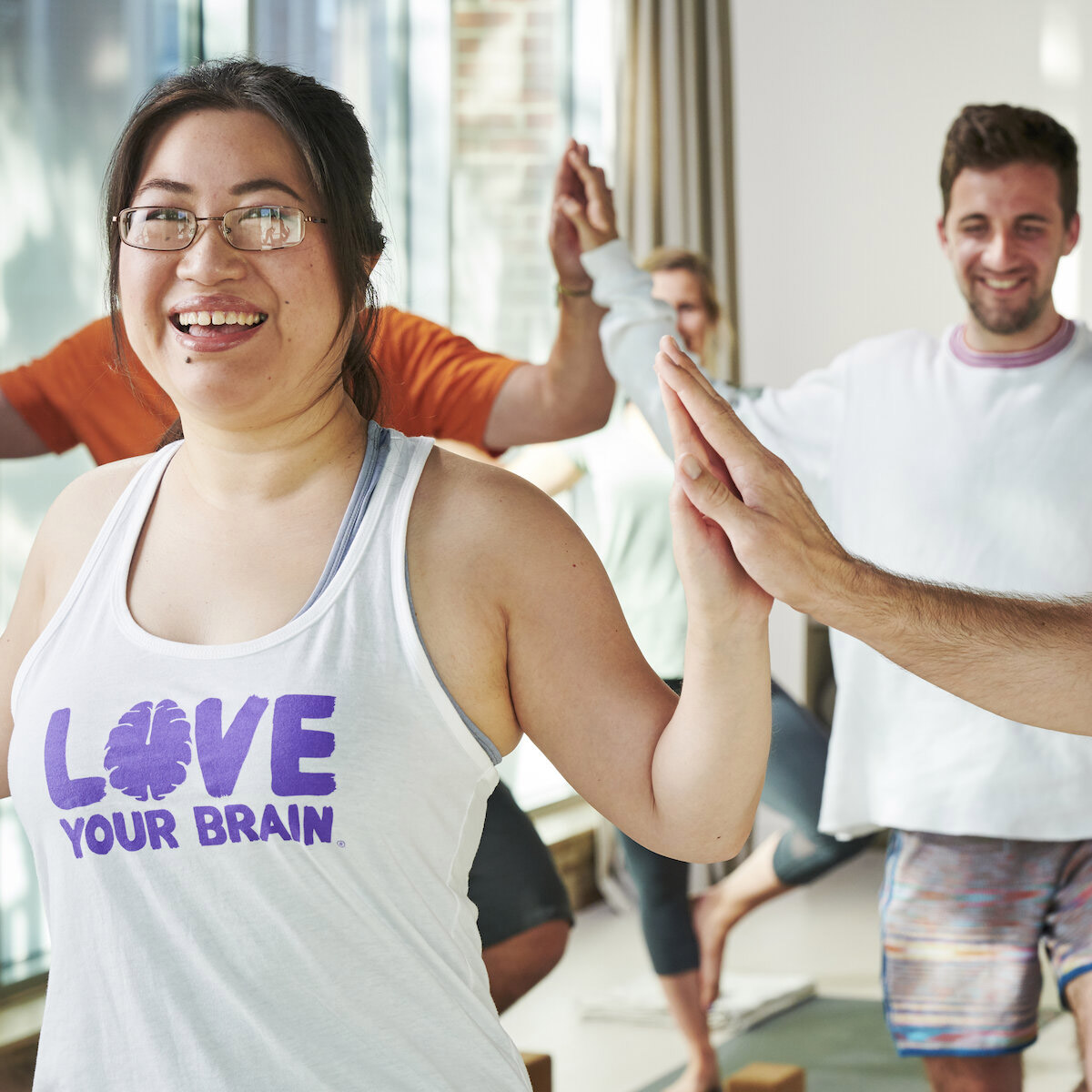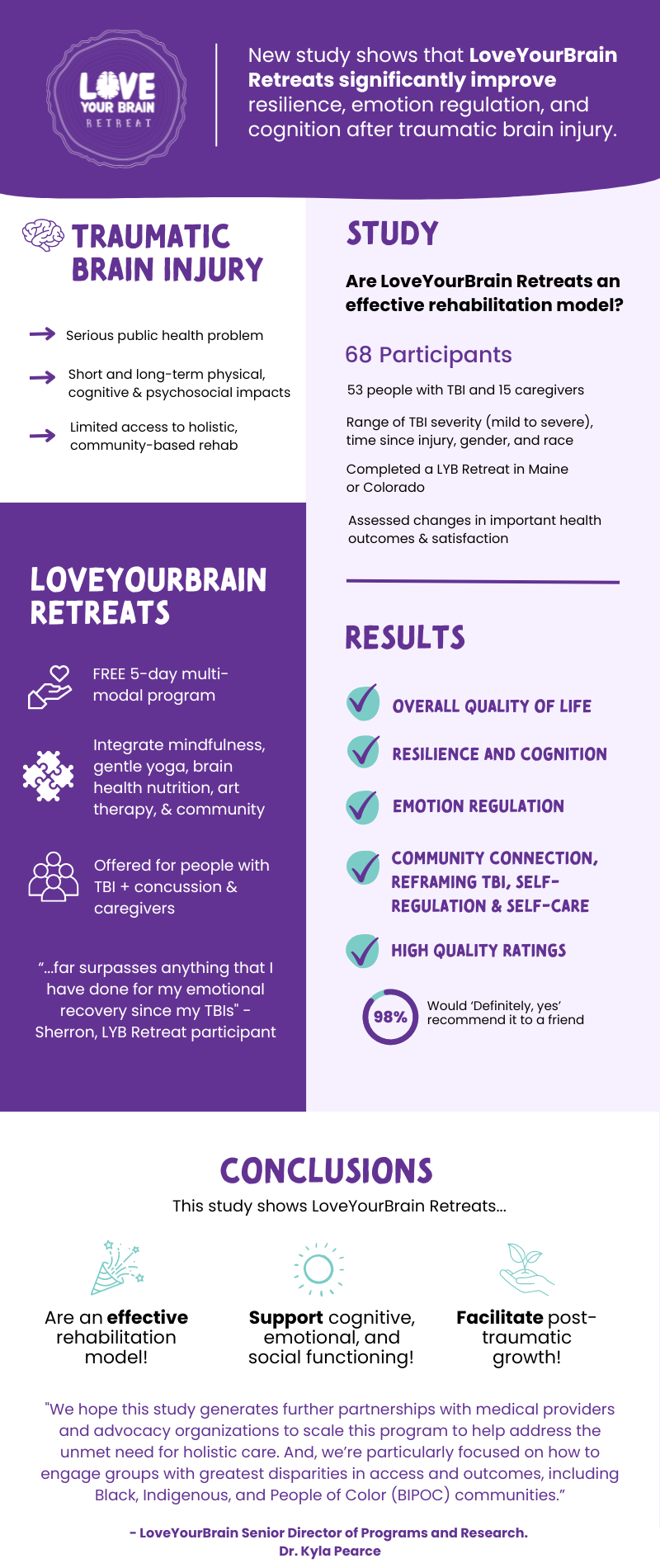
Purpose
To evaluate the feasibility, acceptability, and effectiveness of the LoveYourBrain Retreat program using a pre-post, retrospective, concurrent triangulation mixed methods study.
Materials and methods
A 5-day, multimodal, residential Retreat intervention was designed to improve quality of life among traumatic brain injury (TBI) survivors and caregivers through mindfulness, movement, nutrition, art, and community-building. Eligibility included being a TBI survivor (>2 years post-injury) or caregiver, 18+ years old, independently mobile, able to communicate verbally, and a first-time participant. Self-reported quantitative and qualitative data were collected via electronic surveys pre- and post-retreat, analyzed separately, then combined. Paired t-tests assessed mean differences in scores on Quality of Life After Brain Injury Overall scale (QOLIBRI-OS) and NIH TBI/Neuro-QOL Resilience, Cognition, Positive Affect/Wellbeing, and Emotional/Behavioral Dysregulation scales. We assessed feasibility using sample characteristics and program frequency and retention, and acceptability using quality ratings. Content analysis explored perceived benefits and improvements.
Results
68 People—53 with TBI and 15 caregivers—participated in one of three LoveYourBrain Retreats. Significant improvements were found in QOLIBRI-OS (6.91, 95%CI 1.88–11.94), Resilience (2.14, 95%CI 0.50–3.78), Cognition (2.81, 95%CI 0.79–4.83), and Emotional/Behavioral Dysregulation (2.84, 95%CI 0.14–5.54) among TBI survivors (n = 41). Mean satisfaction was 9.6/10 (SD = 0.64). Content analysis revealed community connection, reframing TBI experience, self-regulation, and self-care themes.
Conclusions
The LoveYourBrain Retreat is feasible, acceptable, and may be effective complementary rehabilitation to improve QOL among TBI survivors.
Implications for Rehabilitation
- Ongoing, holistic rehabilitation services are critical to quality of life for people with chronic traumatic brain injury (TBI).
- Residential retreats are a type of holistic, multimodal, community-based rehabilitation.
- LoveYourBrain Retreats improved quality of life, resilience, cognition, and emotional dysregulation among people with TBI.
- The integration of community connection, reframing TBI experience, self-regulation, and self-care may support adjustment to TBI.

